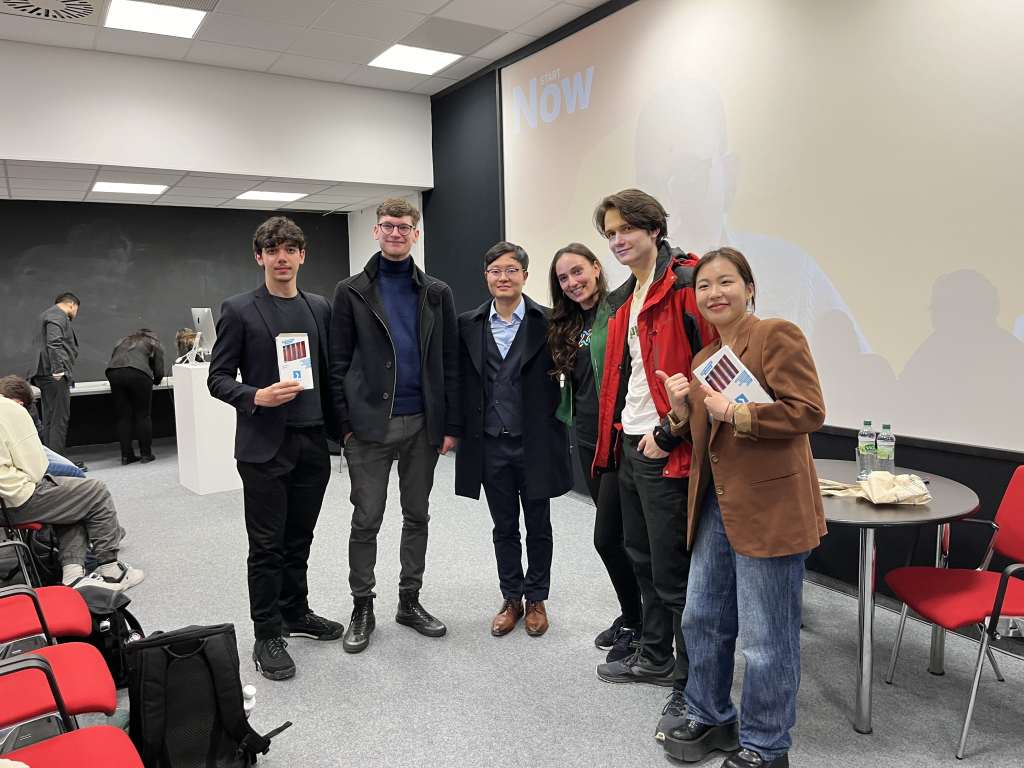
Intakes in Germany: A Complete Guide for International Students
Germany has become one of the most popular study destinations for international students, thanks to its world-class universities, career opportunities and rich cultural experiences. One of the first steps in starting this exciting journey is understanding when you can start your studies. These are known as university intakes and choosing the right one can make a huge difference in your journey.
This guide will walk you through everything you need to know about intakes in Germany, including deadlines, required documents and why picking the right intake matters. Read on to find the best practical information on how to study in Germany for international students.
While the majority of German universities operate on a two-intake system, some institutions also offer additional entry points throughout the year, providing greater flexibility for international students.

Why Understanding Intakes in Germany Matters for International Students
Selecting the right intake is about much more than just start dates. For international students, it determines:
- Visa processing and arrival timelines: You’ll need to apply for a student visa well in advance and knowing intake deadlines makes sure that you have enough time for paperwork.
- Course availability: Some programmes are offered only in the winter or summer intake, so missing one might mean waiting several months.
- Funding opportunities: Many funding options align with specific intakes and applying early increases your chances.
- Cultural and academic transition: Arriving in Germany in either April or October gives you different experiences in terms of weather, festivals and adaptation periods.
In short, the intake you choose shapes your overall experience as much as the programme itself.
Some universities with multiple intakes allow students to start their studies at different times of the year, helping them better align with visa processing, graduation schedules, or personal plans.
How Many Intakes in Germany?
The answer is two main intakes: summer and winter. Some universities may offer rolling admissions or additional deadlines for certain programmes, but for most students, the choice is between April (summer) and October (winter).
However, a few institutions also provide multiple intakes throughout the year, including options in January, April, June, and October, giving students more flexibility to start their studies at different points in the calendar year.
What are the Major Intakes in Germany?
There are two primary German university intakes each year:
Summer Intake in Germany
- Begins in April
- Applications usually open between December and January
- Fewer courses compared to the winter intake but easier competition levels
- Ideal for students who want to avoid peak competition or prefer arriving in milder spring weather
Winter Intake in Germany
- Begins in October
- Applications usually open between May and July
- The larger of the two intakes with more course options and places available
- Attracts the highest number of international applicants, making it more competitive
Key Differences Between Summer and Winter Intakes in Germany
Understanding the differences between the two intakes helps you make the right decision:
- Number of Courses Offered: The winter intake generally offers a wider range of programmes, particularly at the postgraduate level.
- Competition Level: The winter intake is more competitive because it attracts the majority of applicants worldwide. The summer intake, on the other hand, is less competitive.
- Climate Factor: Students arriving in April for the summer intake benefit from pleasant spring weather, while October marks the beginning of autumn and the colder months.
Germany Intakes for Masters: What You Need to Know
If you are considering postgraduate studies, understanding the German intakes for masters is crucial.
- Winter Intake for Masters: This is the preferred option, as most master’s programmes in Germany are offered in October. The higher volume of courses makes it easier to find the right programme.
- Summer Intake for Masters: Available but limited. This intake is useful for students who prefer smaller class sizes and quicker admission cycles.
For Indian students or applicants from other countries where academic calendars differ, aligning your graduation with the German intake months can save valuable time.
When Should International Students Apply?
The key intake months in Germany are April (summer) and October (winter). Applications should ideally be prepared six to nine months in advance to account for:
- Programme research and selection
- Document preparation (transcripts, test scores, letters of recommendation)
- Visa application and processing
- Accommodation and travel planning
Students applying to universities with multiple intake options, including January, April, June, and October, may have additional windows to apply, reducing the waiting period between application and enrolment.
Required Documents for German Intake Applications
When applying to any of the German university intakes, you’ll need:
- Academic transcripts and certificates
- Proof of English (or German) language proficiency (IELTS/TOEFL/TestDaF)
- Statement of Purpose (SOP) and Letters of Recommendation (LORs)
- Copy of passport
- Proof of financial resources (blocked account of €11,904 per year as of 2025)
- Updated CV/Resume (for master’s applicants)
How to Apply for Intakes in Germany
Applying for intakes requires careful planning. Here’s a step-by-step guide:
1. Choose Your Programme
Explore undergraduate or master’s programmes that are suitable for you.
2. Check Intake Deadlines
Ensure you are clear on whether your chosen programme is offered in April or October.
For programmes with multiple entry points, check the additional intake months available to international students as this will give you additional opportunites ot start your studies.
3. Prepare and Submit Your Documents
Upload your application documents through the university portal or Uni-Assist.
4. Secure Your Visa and Accommodation
Apply for your German student visa immediately after receiving your admission letter and book housing early!
Conclusion
Choosing the right intake is one of the most important steps in planning your studying in Germany experience. Whether you apply for the summer intake or the winter intake, aligning your application with deadlines, documents and visa processes will set you up for success.
For students seeking even more flexibility, some universities offer multiple intakes per year – January, April, June, and October, making it easier to start your studies at a time that works best for your personal and academic schedule.
Start Your Journey at Gisma University of Applied Sciences
Gisma University of Applied Sciences offers international students four intakes per year – January, April, June, and October. This allows students to start their studies at the most convenient time while benefiting from strong academic programmes, industry connections, and dedicated student support services.
Choosing the right intake is one of the most important steps in planning your studying in Germany experience. Whatever intake you choose, aligning your application with deadlines, documents and visa processes will set you up for success.
Gisma University of Applied Sciences offers international students the perfect environment to study, grow, and build global careers. With strong academic offerings, industry connections and dedicated student support, Gisma ensures you’re prepared from day one.
FAQs
Which is better for students: Summer Intake in Germany or Winter Intake in Germany?
This depends on what you are looking for: the winter intake is larger and offers more courses while the summer intake is less competitive and may provide a smoother start to your studies.
Are scholarships available for international students in the German intakes?
Yes. Scholarships are available at both government and university levels. Gisma also offers tuition fee reductions and merit-based scholarships.
Can Indian students apply for multiple intakes in Germany at once?
Yes, they can, but most students choose the intake closest to their graduation to avoid large gaps.
How does Gisma University of Applied Sciences support international students during intakes?
Gisma offers comprehensive support, including visa and housing guidance, career services and cultural integration programmes across both intakes.
Want to explore more?
